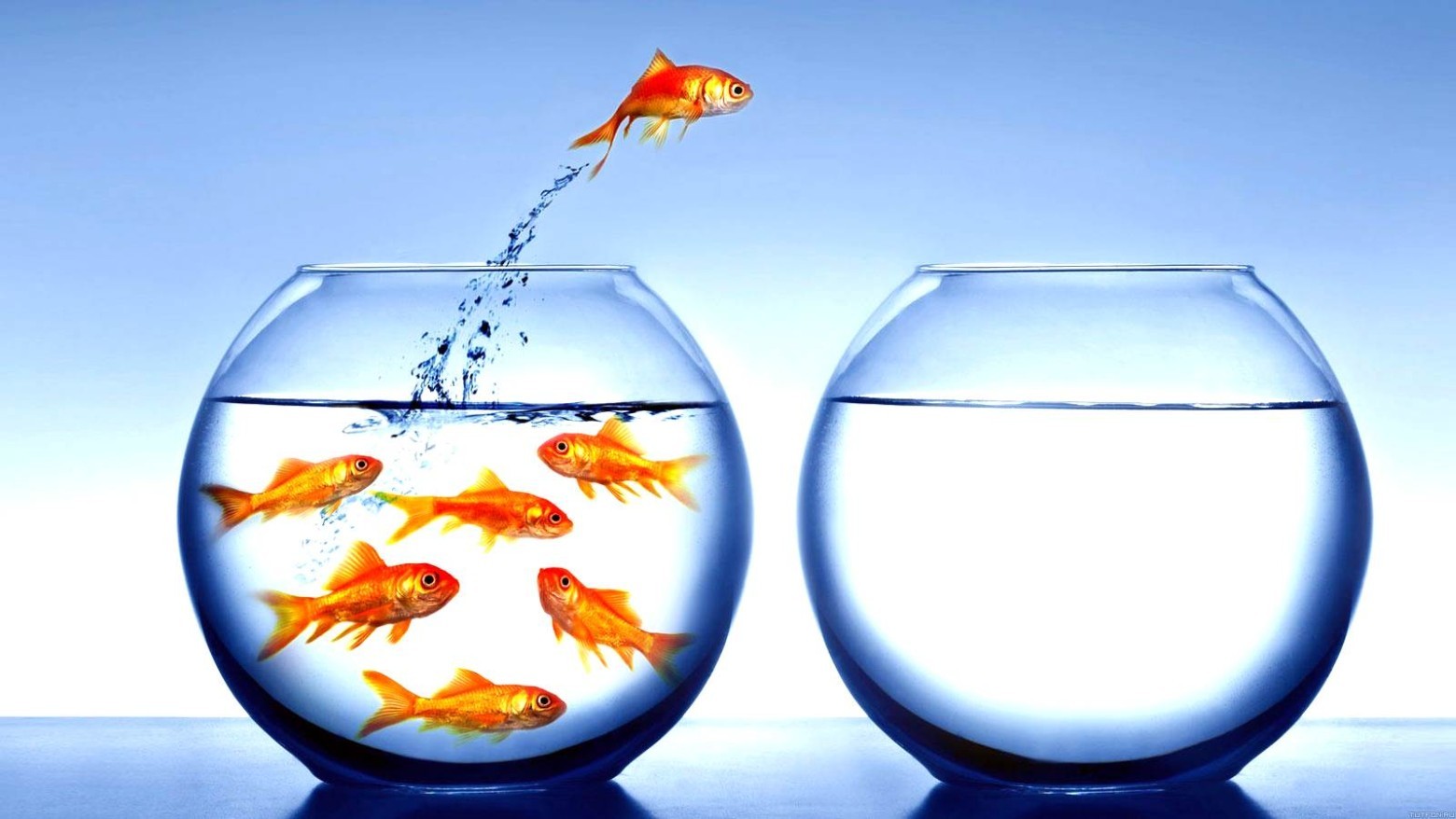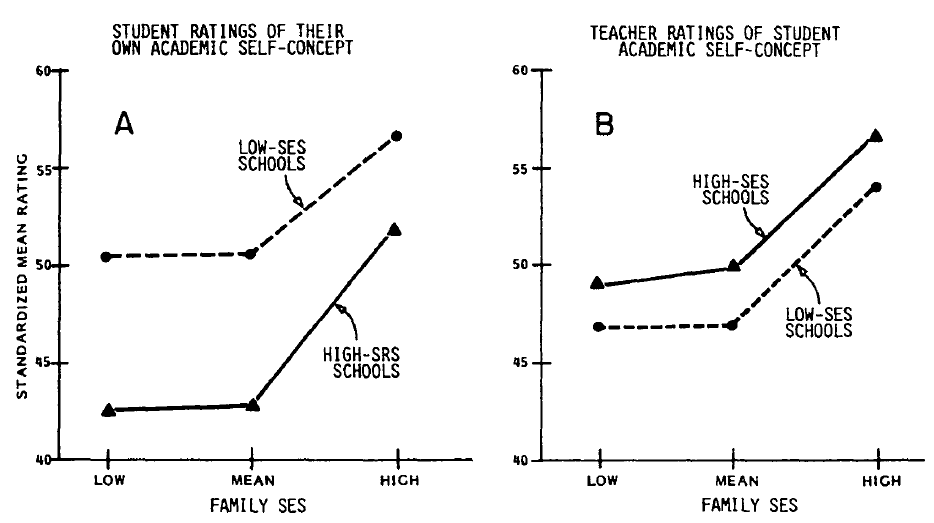The illusions of the brain. The effect of big fish in a small pond

Is it better to be the last guy in town or the first in the village? Go to the gymnasium in the environment of smart guys or remain the best student of a regular school? Is it appropriate to sacrifice social status (and possibly even health ) for the sake of knowledge, education, and higher wages? These are complex questions, the answers to which everyone finds for himself. But it is interesting to look at scientific studies that help to understand a little how the human brain functions and the subjective self-esteem of a person is formed ( I-concept ). This is the effect of a big fish in a small pond (Big-fish – little-pond effect, BFLPE), which was first described in literature in 1984 in the scientific work of psychologists Herbert Marsh and John Parker.
According to the theory of BFLPE, each person assesses himself in comparison with others. As a result, self-esteem is higher if a person is surrounded by less talented and capable colleagues. And vice versa - in the environment of talented and intelligent people, human self-esteem decreases.
In 1984, scientists conducted a study of academic performance and self-esteem of students from different educational institutions. They found that students in low socioeconomic schools (SES) with a low level of audience ability have higher self-esteem than students in high socioeconomic schools with a high level of ability.
')

This rather contradictory conclusion did not really become such a discovery. Similar results were obtained by earlier studies conducted in American schools in 1969 (Soares AT, Soares LM " American Educational Research Journal" ) and 1972 (Trowbridge NT "Self-concept and socio-economic status in elementary school children , American Educational Research Journal ). But a 1984 study showed that the effect is much stronger than expected. School attendance at a high socioeconomic level greatly reduces the pupil's school self-esteem, while at the same time correlating with a higher level of actual performance.
A 1984 study found that individual school self-esteem usually correlates with a student’s academic performance, but only if evaluated in a single school. If we compare schoolchildren from different educational institutions, we observe the very effect of BFLPE.
It turns out really contradictory situation. If we take a student and transfer from a school to a more advanced gymnasium, the level of his education will increase, but we risk making the child an unhappy person, lower his self-esteem. And it is still unknown how this will affect the character of the child and his future fate.
Studies conducted in subsequent years have confirmed the effect on different groups of schoolchildren, in different environments, countries, etc. The effect was confirmed by long-term repeated studies on the same samples. In general, the influence of the environment on students' self-esteem can be considered an established fact. In this regard, the authors of the study believe that this information should be taken into account when organizing schools and distributing pupils into school classes.
Scientific studies of BFLPE were carried out in primary and secondary schools, but it can be assumed that the effect of a large fish in a small pond also manifests itself fully in adulthood. In any highly competitive environment there are several “winners”, many “losers”, and the overall self-esteem of the participants in such an environment decreases . So you need to be careful with competition - often this is not the most humane method.
We all know how important for career and success in life is confidence. But low self-esteem of a person manifests itself in a whole bunch of negative consequences:
- Excessive self-criticism.
- Oversensitive to criticism. Outrage and resentment at criticism. Feeling that he is being attacked.
- Chronic indecision and excessive fear of making a mistake.
- Passionate desire to please and unwillingness to upset everyone who asks for something about him.
- Idealism, which can lead to frustration when the ideal is not achieved.
- Constant hostility, universal defensive attitude and irritability for no reason.
- Pessimism and a general negative outlook.
- Envy, bias.
- Inadmissibility even temporary failures.
To be fair, it should be noted that people with low self-esteem often become perfectionists, they are more often characterized by personality type A , they often achieve greater success in business, are better organized, have better deadlines, are more disciplined, more strict about themselves and others.
In any case, low self-esteem is always a higher level of stress, an increased risk of cardiovascular diseases and a lower life expectancy. Despite all the successes in life, such people live less. That is, when we talk about the effect of the BFLPE, we are talking about the positive effect. Feeling like a big fish in a small pond allows you to avoid low self-esteem, which is dangerous to health.
All these are interesting side effects of the I-concept — systems of a person’s self-representation, a reflexive part of the personality. Theoretically, a person’s self-image should be adequate, consistent with reality. If we place an intelligent person in an environment of even more intelligent people, then he will form an understated self-esteem - and this is already an inadequate idea of himself. Such a view does not correspond to reality and can harm a person.
So, next time, think carefully about whether you really want to work in the coolest company or send your child to the best school that he can enroll in. What happens if your gifted son becomes the worst in class? How will this affect his character? And what will happen to your own self-esteem if you and your IQ 135 bring coffee to the leading employees of the coolest company who have an IQ higher than 150?
Source: https://habr.com/ru/post/399553/
All Articles